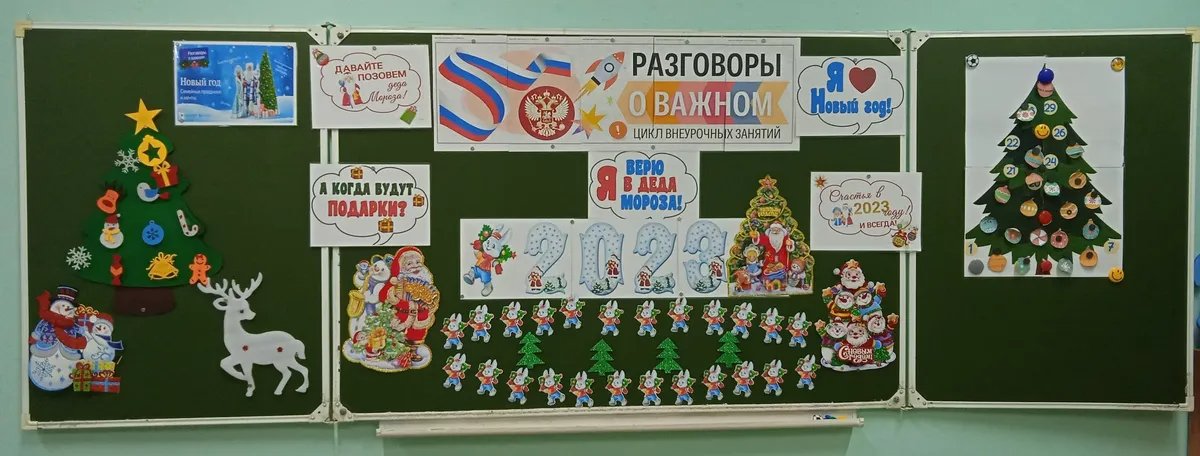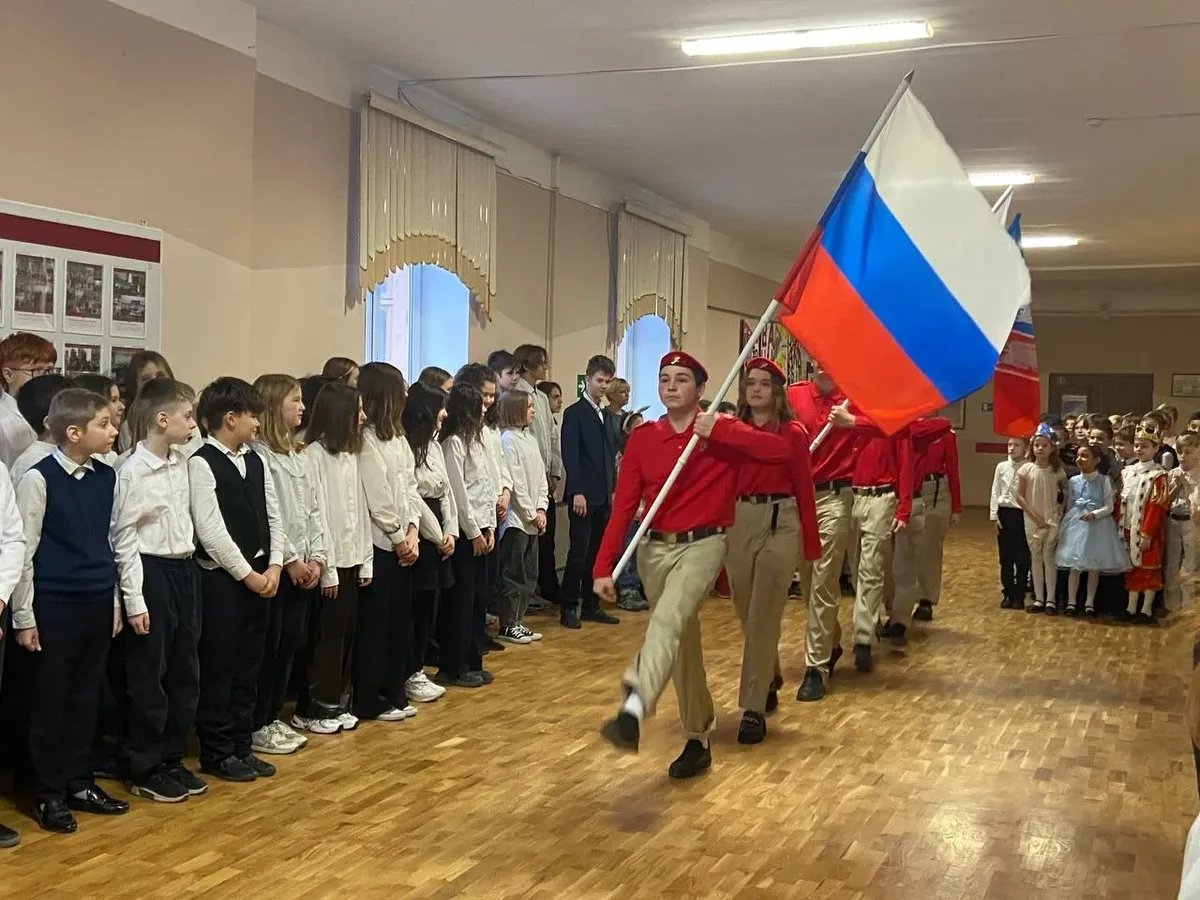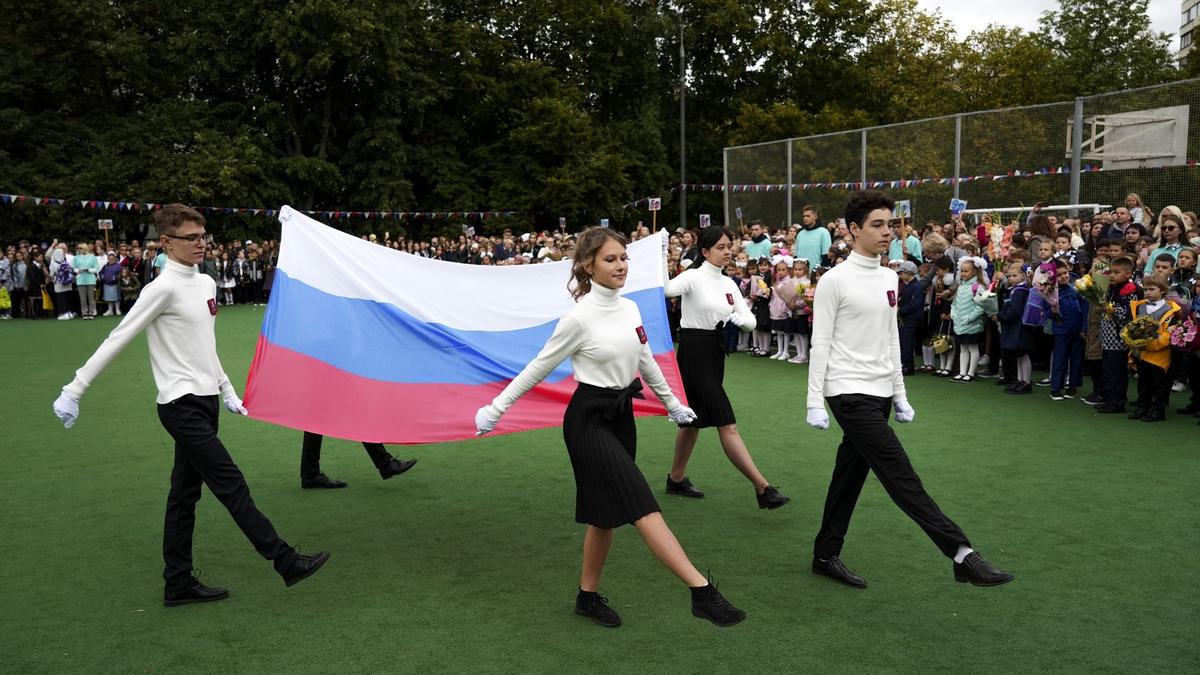The new school year in September began with the raising of the flag to the Russian national anthem, and continued with the “Important Conversations” program which — by the logic of government officials — is supposed to instil patriotic sentiment in children.
Russian children themselves, for the most part, say that they prefer an extra half hour of sleep to these lessons — and if they do attend, that the theme of the war is usually not touched upon. However, this isn’t true everywhere. Novaya Gazeta Europe has compiled the stories of a few students about how the war is discussed in their schools and how this “patriotic education” actually looks.
All the names of the schoolchildren whose stories are collected here have been changed. At the students’ request, the numbers of their schools are not indicated, though they are at the disposal of the Novaya Gazeta Europe editors.
Nadya, 10th grade, Nizhny Novgorod region
I’m in 10th grade. I haven’t heard my classmates openly announce their positions [on the war]: when I look at them, I get the feeling that they aren’t interested in it one way or the other, and they carry themselves as if nothing is happening. I think everyone is quiet because they aren’t entirely sure that they can argue, and because they’re afraid for themselves. I also don’t talk openly about my stance on the special operation. I think I don’t talk about it because it’s scary. The only thing that I did do was I changed my status to “No to War” on VK, but that’s it.
And among the teachers the majority have come out in support of the special operation, but not all of them talk about it in class. Since February, there have been a couple times that a conversation about the war started in class. Our teacher said that Ukraine asked our president to help the people who consider themselves Russian, and that they needed to be saved.
Also in our school they held two “lessons in courage” — one at the end of March and one around a month ago. At one of these lessons, they said that there’s been a revival of fascism in Ukraine in recent years, that this ideology is encouraged there, that the US and the UK and their allies have “created an ‘Anti-Russia’ out of Ukraine” to “destroy the Slavic race.”
A few months ago, I came to the gym and saw something written on the board, and it came into my head to write “Glory to Ukraine” there. I didn’t know that this was all quite serious. I wrote it, and then the teacher told me to erase it; I erased it, and she didn’t say anything else about it.
Then, at the second “lesson in courage”, the head teacher told me that the principal had called me to her office. The principal asked me if this was really my position [on the war] or if it was some kind of stupid joke. I said that it really was my position. Then they started to ask me who was in my circle of friends, did someone influence me in some way, do I have an Instagram account. I said I have one. And they said that this is a banned website and there’s fake news there.
They also said that the school would have to report this somewhere, so that psychologists or special people from the FSB could talk with me about it. This conversation [with the principal] continued for an hour, and finally I said that it was just stupidity and I wouldn’t do it again, that school and politics are separate. On that note the conversation ended.
At the “Important Conversations” lessons in general they cover topics not related to the special operation, or at least I haven’t heard about that.
My own attitude toward the “Important Conversations” program is disdainful. I think they want to hammer us with the message that Russia is better than all other countries and that Russians are good. It seems to me that my classmates perceive [“Important Conversations”] as an obligation: well, it’s written in the schedule, that means we have to go. There’s only one person who doesn’t come to them, but I don’t know if that’s because of his position or because he just wants to sleep longer.
And also now we listen to the anthem in the gym every Monday at 8 a.m., and then at “Important Conversations” we listen to half of the anthem again. I’m sceptical about all of this too: it seems that they expect that listening to the hymn will make us feel some kind of pride for our country.
I was against the war in February, when they announced the special operation, and every day since then I’ve been against it. So no kind of “important conversations” have influenced my position on this.

Potapovskaya secondary school, Rostov region. Photo: VK
Maksim, 9th grade, Moscow
I’m in 9th grade. We had two teachers [who have talked about the special operation]. In the first class of “Important Conversations,” one of them said that opposition is bad, and that everything [the deployment of Russian forces on the 24th of February] was done correctly.
And we have another Social Studies teacher who vehemently maintains that everything that’s happening is right and good. He has even said that war is cool, because during war art flourishes for some reason. This is the most political teacher; in general, they try to avoid this topic.
I myself am quite political, so I love to discuss this when I have the chance — granted, not so openly, not so overtly, but more carefully, so that I don’t fight with other people.
We have “Important Conversations” every Monday at 8:30, first thing. At the beginning, our head teacher told us that this would be basically a regular class. She didn’t even call it “Important Conversations”. These classes are conducted quite inoffensively in fact.
It’s not like you show up and they start talking about the special operation and all of that. Recently — maybe a week or two ago — we had a unit on volunteering, and that same day Putin in his speech said something about volunteering. Beyond volunteering, there were also units on nuclear energy, on shipbuilding, on the development of the North Pole.
The topics seem to be unrelated [to the war], although they’re all connected with Russia — the unit on nuclear energy, for example, was connected with Rosatom. But there isn’t direct, open politicization — it’s either hidden or doesn’t appear very obviously.
I skip a lot of these lessons — it’s better to get the extra sleep because nothing interesting usually happens in them.
Every week one of the students in our school raises the flag while they play the anthem. This person changes from time to time. Not long ago it was our classmate, but I didn’t go because I don’t support this kind of thing. And I don’t really want to raise the flag — it’s better to sleep the extra half hour.
I think this is an unhelpful thing. I’m against all of this, against “the special operation”; I’m against any war, especially senseless ones (as most wars are). Probably in the schools where [in “Important Conversations”] they support everything vehemently, it’s really for the sake of propaganda, and not for the sake of people, not for the sake of logic. For us it’s just a waste of time. So I think there’s no real sense in participating — not for the government and not for us.
And as for the rest of it, where a general atmosphere is concerned, nothing has really changed. Personally, I have changed my opinion about a few people — now that I know, for example, that they are pro-war. But often students don’t talk about this subject. Eighty percent of people in school don’t really think about it — it’s sort of like, something is happening, fine, but, as one of my friends said, “as long as bombs aren’t falling on us, it’s whatever”. People have been living like that, and they keep living like that.
Violetta, 4th grade, Kaliningrad region
Recently our school was given the name “Katerinichev” (named in honour of the “divisional head” of the occupied Kherson region, FSB employee Aleksei Katerinichev — editor’s note). They told us that he was a hero of the war and saved our school from terrorists, that he participated in 23 military operations, and that he died in the war.
They don’t talk with us much about the special operation in Ukraine — they’ve just told us that it’s happening.
“Important Conversations” are just like normal classes, although without notebooks or textbooks. We talk about national holidays, for example, about Constitution Day, Music Day, Volunteering Day. They also tell us that our country is the biggest and greatest — we study the flag, the coat of arms, and the anthem. I don’t like this class; it’s boring. My classmates also aren’t fans of this class for the same reason.
Dmitri, 9th grade, Moscow
I’m in 9th grade at an engineering school. And I’m categorically opposed to the special operation. In our class at the beginning of the military action there were a couple people who supported [the war] and were more radical about it. But then they started to change their opinions and become more neutral, to say that this is a difficult topic and it’s hard to understand it.
At the very beginning [of the war] we had a class in history or social studies, I don’t remember, and the teacher devoted the whole lesson to a neutral history of mutual relations between Russia and Ukraine, to enlighten us and so that we ourselves could look more objectively on things in the world. This was really cool.
There was also another lesson, in geography, when we were discussing energy resources. On the map of Russia, it was shown that we get coal from Donbas, and that these are supplies “from abroad”. And our teacher, laughing a little, said that now it’s not from abroad anymore.
After the Russian troops left Kherson, I asked the geography teacher about the Kherson oblast, and he said not to ask such provocative questions.
We also have these “Important Conversations” classes, some kind of patriotic education program.
At one of these classes that I went to, we were discussing volunteering: what is it, why is it needed, do we want to do this. But we were really lucky with our head teacher, who also has a neutral or even a negative attitude to all of this, so this class turned into a general education about the history of Russia.
He looks at the lesson plans and tries to skip over the propagandist points, discussing history in general. Of course, he still adheres to the lesson plan that the department of education gives out, but I have yet to hear any kind of propaganda from him.

Lyceum No. 51, Rostov-on-Don. Photo: VK
Every Monday the “Important Conversations” begins with the anthem. We are just sitting in class, and they play the anthem through the whole school. We stand for a few minutes, but we don’t watch the guys who are solemnly walking with the Russian flag.
The raising of the flag happens once on Thursday: this is done on one floor of the school where there’s a little space. They gather some students there, who have been chosen ahead of time, and they walk in with the flag while the anthem plays. It looks really cringe.
Some students laugh at this, but in general everyone views it as a given. It would seem that this is just the Russian anthem, so why not stand up for it… But I don’t like that this is done forcibly, and how such patriotism is shown.
One time in our school a guy came in with the letter Z on his T-shirt — he wasn’t in our grade; we just saw him in the hallway. He walked past us, and my friends and I laughed at him. I didn’t see that T-shirt anymore. And there was another situation: we had a chat where all the 9th-graders could communicate, and there was one genius there who started posting videos of Wagner PMCs there, and making polls about which is better — to throw a nuke or a dirty bomb — and stuff like that. The guys from the chat tried everything to get him to shut up and asked the admin to ban him from the group. In the end he was blocked.
We got really lucky with our class leader — I’ve heard that in other classes it’s all done much more harshly; they refer to the department of education and the classes are more patriotic. Our teacher even told us that it’s a little awkward for him that we have to stand before the flag and watch them raise it, that he himself doesn’t really want to do this but it’s mandated from above. If our teacher continues to talk with us honestly (in the “Important Conversations”), I’ll keep going. If some sort of propaganda starts, then I’ll sleep in at home instead of going to this class.
Join us in rebuilding Novaya Gazeta Europe
The Russian government has banned independent media. We were forced to leave our country in order to keep doing our job, telling our readers about what is going on Russia, Ukraine and Europe.
We will continue fighting against warfare and dictatorship. We believe that freedom of speech is the most efficient antidote against tyranny. Support us financially to help us fight for peace and freedom.
By clicking the Support button, you agree to the processing of your personal data.
To cancel a regular donation, please write to [email protected]

